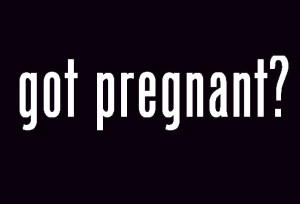 If you’ve been following this blog at all for the past year, you will find several posts that hit on the importance of words—choosing the right language is critical in framing the pro-life debate. Words have the power to shape culture… and vice versa. And aside from the obvious deceptions like “reproductive choice”, “fetal tissue” or “product of conception”, there are several other much more mundane phrases in our vocabulary that well meaning people use all the time. Some of these ought to be reconsidered…
If you’ve been following this blog at all for the past year, you will find several posts that hit on the importance of words—choosing the right language is critical in framing the pro-life debate. Words have the power to shape culture… and vice versa. And aside from the obvious deceptions like “reproductive choice”, “fetal tissue” or “product of conception”, there are several other much more mundane phrases in our vocabulary that well meaning people use all the time. Some of these ought to be reconsidered…
1. “Mommy-to-Be”
We all hear this applied to pregnant women and it seems cute and benign, but the reality is different. Motherhood does not begin at birth. If we believe that life begins at conception, we have to believe that this ‘life’ has a mother; when a woman becomes pregnant, she becomes a mother. Getting used to the word mother applied to pregnant women, the truth is inherently pointed out that a child, (not just a “non-person until birth”) is inside of her.
2. “Got Pregnant”
I really think this is a crass way to describe expecting a child. One “gets” things like the chicken pox, the flu or pneumonia. Pregnancy shouldn’t be implied as something one ‘catches.’ The underlying sentiment is negative. A woman doesn’t get pregnant, a woman becomes pregnant, i.e., enters a new state of being. Even worse than got pregnant is got her pregnant. This derision reinforces the pitiful idea that pregnancy is a woman’s problem and that men have very little to do with it other than to supply the sperm. Fatherhood is under attack enough already and to write him off this way is to release him of responsibility and to burden women with the entire onus of parenthood.
3. “Was it planned?”
You can’t go to any initial prenatal appointment without hearing this question asked of a newly pregnant woman. I would maintain that the answer is irrelevant. And the implication is that you somehow screwed up or experienced a birth control failure if you say that the baby wasn’t planned. Millions of ‘unplanned’ babies are born that are loved and cherished all the time. This is a fact. Conversely, there are many cases of “planned” babies that are subject to horrid abuse and neglect by there parents also! The lie has to stop that an unplanned pregnancy irrefutably equals an unloved child. I am convinced that the more women are exposed to this truth, the more they would be able to find hope amid the seeming despair that they find themselves in with an ‘unplanned’ pregnancy.
4. “Trying for a Baby”
This is a phrase so ubiquitous that you might be surprised to find it on my hit list here. The reason I dislike it is because it seems to commodify the act of having a child or normal marital relations that should spring from the natural love between a man and woman. People “try” to reduce their mortgage or they “try” to lose weight. But fertility is a naturally present biological state and to reduce lovemaking to a procreative obligation seems just as cheap as reducing it to purely getting a fix on a disordered lust. I think a more fitting phrase and one that respects that sanctity in creating a new life is hoping for a baby.
5. “Half People”
I’ve said it myself before I rethought it: You’re at a restaurant with a 6 month old baby and the hostess asks “How many?” And you reply with a smile “Three and a half people.” Maybe this is splitting hairs but if we can raise the dignity of babies even just a shred by not referring to them as “half people”… it’d be a small price to pay.
6. “I don’t care if its a boy or a girl as long as it’s healthy.”
Good people say this all the time about their unborn children. And I think they probably would still love their child if he/she was born with a disability or health condition. But the phrase isn’t carefully worded. Of course all parents wish for their children to be healthy. But that awful little clause as long as is where my radar goes up and wishes that this phrase would just quietly go away. The implication is obvious, even if not meant. A friend of mine discovered that her baby had a neurological defect while she was pregnant. Many adults currently live happy, fulfilled lives with this condition but doctors convinced her that the merciful thing to do was to terminate… and then “try again later” because she’d be able to love a healthy child more. She believed this to be true and had an abortion. Love doesn’t depend on health; we need to support women more in dealing with crises like this and it starts with something as simple as changing our language.
